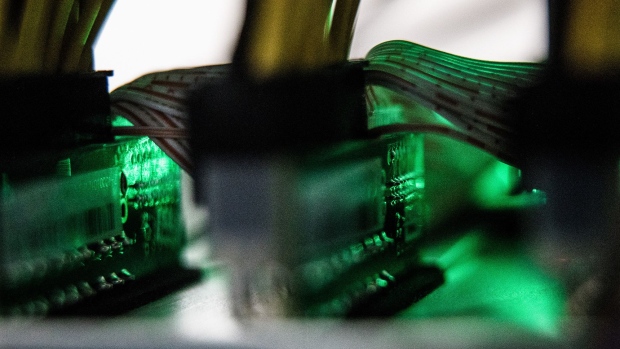Nov 5, 2019
Lawyer Made Millions Laundering Money in Crypto Scam, U.S. Says
, Bloomberg News

(Bloomberg) -- Mark Scott got a nice bump when he left his partnership at a big law firm and took up money laundering for a multibillion-dollar international pyramid scheme based on the fake cryptocurrency OneCoin, federal prosecutors say.
Scott, who has pleaded not guilty, is accused of using a network of shell companies, offshore bank accounts and phony investment funds to hide the origin of $400 million in illegal proceeds. He made millions, which he used to buy a 57-foot yacht, multimillion-dollar homes in Cape Cod, Massachusetts, and luxury cars, including three Porsches, Assistant U.S. Attorney Julieta Lozano told jurors on Tuesday in her opening statement in Scott’s criminal trial in Manhattan.
“The scheme raked in billions of dollars in dirty money,” Lozano said. “It was the defendant’s job to clean that money.”
OneCoin generated 3.4 billion euros ($3.8 billion) in revenue from the fourth quarter of 2014 to the third quarter of 2016, according to the government, but had no real value and couldn’t be used to buy anything.
The company that allegedly ran the scheme, OneCoin Ltd., claimed to have more than three million members worldwide. It operated as a multilevel marketing network that paid commissions to members for recruiting others to buy OneCoin packages, prosecutors say.
Read More: OneCoin Leaders Charged in Multibillion-Dollar Pyramid Scam
Scott, 51, is a former partner with Locke Lord LLP, a U.S.-based law firm with 21 offices including Houston, Dallas and Chicago. He was arrested in September 2018 in Barnstable, Massachusetts. He’s charged with one count each of money-laundering conspiracy and bank-fraud conspiracy and could spend years in prison if convicted.
Also charged in the case are Ruja Ignatova, one of two people who founded OneCoin in 2014 in Sofia, Bulgaria, and her younger brother Konstantin Ignatov. Ignatova, known at OneCoin’s peak as the “cryptoqueen,” disappeared in 2017 as OneCoin came under suspicion. Ignatov was arrested at Los Angeles International Airport in March and is in custody. He’s testifying as a witness for the government.
On Tuesday, Scott’s lawyer told jurors his client didn’t realize OneCoin was based on a worthless electronic currency. Scott believed he was running his own legitimate investment fund with money from his client, Ignatova, who is to blame for the fraud, he said.
“He did not know that OneCoin was a scam,” the lawyer, Arlo Devlin-Brown, told jurors. “Mark is one of the people that she lied to.”
The case is U.S. v. Scott, 17-cr-630, U.S. District Court, Southern District of New York (Manhattan).
To contact the reporter on this story: Bob Van Voris in federal court in Manhattan at rvanvoris@bloomberg.net
To contact the editors responsible for this story: David Glovin at dglovin@bloomberg.net, Peter Jeffrey
©2019 Bloomberg L.P.





